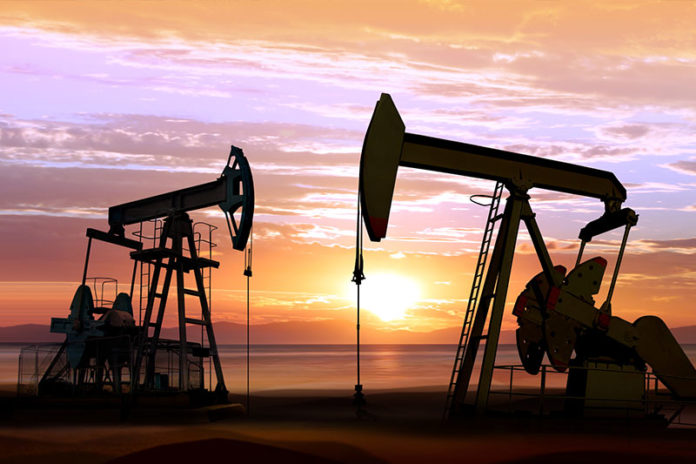Last week, oil prices were at their highest in three years.
Today they’re dropping again.
US crude oil futures are down almost ten percent, trading around $66.50 a barrel. That’s down from about $73 last week. That may not seem like much, but on a global scale we’re talking about millions of dollars in lost revenue for oil producers and millions in savings for oil consumers.
The drop in prices was almost certainly triggered by the Saudis. Their energy minister Khalid Al-Falih said during a panel in St. Petersburg that he was in discussions with Russia and other OPEC nations to produce more oil. This is all in order to ease global supply concerns, according to Al-Falih.
OPEC, the middle-eastern oil cartel that effectively controls the oil trade, is due to meet with Russia (another major oil-producing state) in Vienna on June 22nd. There’s supposed to be a discussion at that meeting about removing or reducing self-imposed production caps which have been in place since 2017. Such caps are usually an attempt to raise the price of oil, and in this case they were working, kind of.
But Khalid Al-Falih no doubt recognizes that the world’s supply of oil (which is crucial to the functioning of civilization, whether the libs like it or not) is under some real threats lately.
The Venezuelans have seen their oil production dropping like a rock, as a result of political turmoil and economic instability there. In fact, their oil industry, which was once the main driver of Venezuela’s economy, has all but collapsed. That’s what you get when you try to run a socialist utopia; sooner or later the facade of prosperity wears off and the rotten underbelly is exposed.
Besides the loss of Venezuela’s oil, the world is also going to see some impacts from the new sanctions the US is imposing on Iran. When sanctions on Iran were lifted, they increased their production by a million barrels a day. Some of that oil is going to be pulled from the market. In fact, analysts think that the Iran-deal pullout was largely the reason oil prices were rising over the last few weeks.
So now OPEC and Russia will meet, and Khalid Al-Falih is indicating that the Saudis, who control OPEC, are going to push for an end to the price-inflating production caps. The Arabs and the Russians will pump more oil, so prices will go down.
If all goes according to plan, the price of oil shouldn’t rise much from where it stood before the collapse of the Iran deal. Americans should still enjoy low-ish gas prices, especially over the next six months. The Treasury Department has said that sanctions targeting Iran’s oil industry will come with a six month lag. That ought to give the Saudis time to increase production enough to meet the expected demand.
The question remains, though, why are the Saudis willing to pick up the slack for Iran and Venezuela? And will the Russians really be willing to play ball?
The Saudi question is particularly interesting given that their state-owned oil company, Saudi Aramco, is going to launch an IPO soon. If oil prices are high, and the Saudis remain confident that they’ll stay at the $70 a barrel range about a year out, they’ll launch the IPO. If not, they’ll probably sit on it.
So why are they now signaling a willingness to drop production caps and produce more oil, which will undoubtedly bring the price down?
One reason is probably an economic one. Any revenue lost by Iran is revenue picked up by other producers. The Saudis know that other oil-producing nations, like other OPEC states or even the US itself, could probably fill the gap if they wanted. And the Saudis hate to leave money on the table. They also surely recognize that when oil prices climb too high, consumers cut back on their spending. Over time, this leads to a lower global demand for oil.
Given that oil is effectively the only product the Saudi economy puts out, low demand for it is worse for their economy in the long run that low prices. In fact, much of what the Saudis are doing is probably to keep oil at the $60-$70 a barrel “sweet spot” price. That price is considered by most experts to be high enough for producers to make money, but low enough for consumers to justify buying a lot.
It’s not certain right now whether the Russians will agree to raise production caps. Their oil minister, Alexander Novak, has signaled a willingness to play ball with OPEC, but it’s all in the works still.
Russia has very similar economic concerns as Saudi Arabia. They are the second-largest exporter of oil in the world, after Saudi Arabia.
Oil is the cornerstone of Russia’s economy, and although the Russians produce other goods, nothing really comes close to oil. Petroleum and petroleum products have historically hovered around seventy percent of Russia’s total exports.
So a major rise in prices would hurt them in the long run too.
For the sake of the American driver’s wallet, let’s hope Russia and Saudi Arabia decide to address the coming global oil supply problems.






























